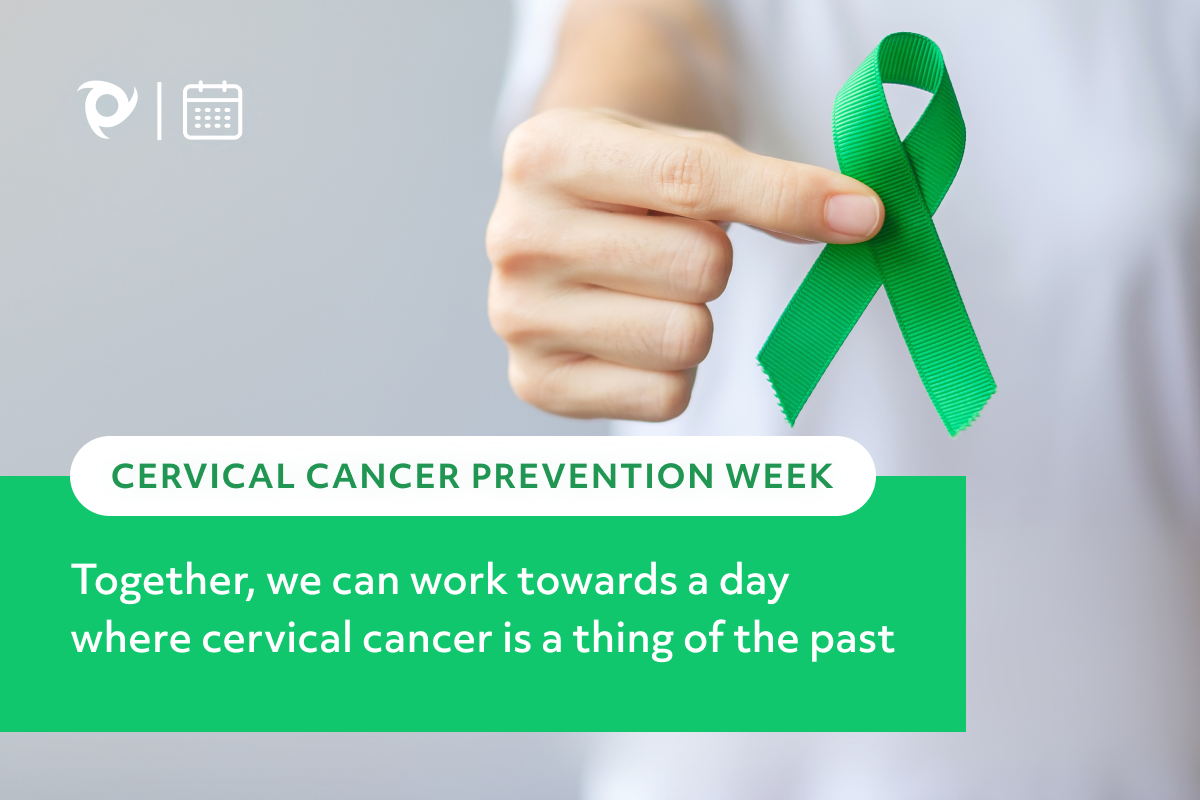

This week is Cervical Cancer Prevention Week, an annual event dedicated to raising awareness about the importance of cervical screening and the steps that can be taken to reduce the risk of developing cervical cancer. As the name suggests, the focus of this week is on prevention, which is key to one day making cervical cancer a thing of the past.
During this week, we want to highlight the importance of cervical screening, as well as provide information on the signs, symptoms, and risks associated with cervical cancer, as well as ways to reduce your risk.
What is Cervical Cancer?
• Cervical cancer is a cancer that's found anywhere in the cervix.
• The cervix is the opening between the vagina and the womb (uterus).
• It's part of the reproductive system and is sometimes called the neck of the womb.
• Nearly all cervical cancers are caused by an infection from certain types of human papillomavirus (HPV).
• It can often be prevented by attending cervical screening, which aims to find and treat changes to cells before they turn into cancer.
• Cervical cancer usually grows very slowly. How serious it is will depends on how big it is, if it has spread and your general health.
Symptoms
• Vaginal bleeding that's unusual for you – including bleeding during or after sex, between your periods or after the menopause, or having heavier periods than usual
• Changes to your vaginal discharge, including odour
• Pain during sex
• Pain in your lower back, between your hip bones (pelvis), or in your lower tummy or legs
• Weight loss
• Fatigue that is constant
If you have another condition like fibroids or endometriosis, you may get symptoms like these regularly.
Who is at risk of cervical cancer?
• Human Papilloma Virus -The most important risk factor for cervical cancer is HPV. Most infections occur after people become sexually active, and most people clear the virus without problems. There are over 100 different types of HPV. Not all of them are linked to cancer. HPV vaccines can prevent people from developing certain cancers, including cervical cancer.
• Immune system deficiency - People with a lowered immune system have a higher risk of developing cervical cancer. A lowered immune system can be caused by immune suppression from corticosteroid medications, organ transplantation, treatments for other types of cancer.
• Herpes - People who have genital herpes have a higher risk of developing cervical cancer.
• Smoking - People who smoke tobacco are about twice as likely to develop cervical cancer compared with people who do not smoke.
• Age - People younger than 20 years old rarely develop cervical cancer. The risk goes up between the late teens and mid-30s. People past this age group remain at risk and need to have regular cervical cancer screenings.
• Socioeconomic factors - Cervical cancer is more common among groups of people who are less likely to have access to screening for cervical cancer.
How to reduce your risk
• Reporting to GP any abnormal bleeding/symptoms
• Being vaccinated against HPV (Human papillomavirus)
• Having regular cervical screening from age 25+
• Stopping smoking
Why should I get tested?
Screening is the best way to find out if you have HPV, which is the single biggest risk for developing cervical cancer. Screening can pick up changes in the cells of your cervix that could lead to cervical cancer in the future.
Cervical cancer is a very treatable disease if detected in its earliest stages. Importantly most abnormalities are detected at a pre-cancerous state.
Click here to find out more about cervical cancer on the NHS website.